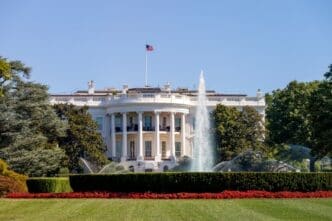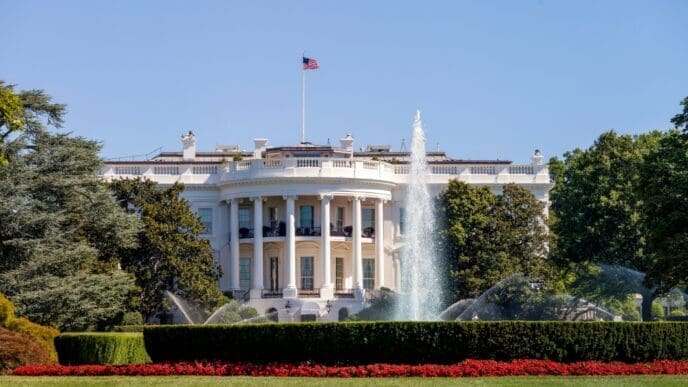The recent directive from the Trump administration, mandating that K-12 schools confirm adherence to civil rights laws while simultaneously curtailing diversity, equity, and inclusion (DEI) initiatives, is a significant overreach of federal power that threatens the very fabric of our educational system. By imposing these stringent conditions on federal funding, the administration is undermining local control, stifling diversity efforts, and framing the narrative in a way that overlooks the complexities of educational equity. The implications of such a policy could ripple through our society for years to come.
Erosion of Local Control
At the heart of this policy lies a fundamental disregard for the autonomy of local school boards and communities to determine their educational priorities. Education, a practice deeply intertwined with local culture and needs, should not be dictated by a “one-size-fits-all” federal mandate. Local leaders and educators are often best positioned to understand the unique challenges their students face. By enforcing a strict compliance framework that prioritizes a narrow interpretation of civil rights laws, the federal government diminishes the ability of schools to tailor their approaches to the diverse needs of their student populations. This top-down approach risks homogenizing education, failing to recognize that the solutions for one community may not fit another.
Chilling Effect on Diversity Initiatives
Furthermore, the chilling effect this policy may have on diversity initiatives cannot be overstated. Schools striving to create inclusive and equitable environments may be dissuaded from implementing programs that seek to counteract long-standing disparities. For minority students, who have historically been underserved, the potential withdrawal of federal funds can threaten their access to essential resources and support systems. An environment that seeks to prioritize inclusion shouldn’t be viewed through the lens of legality alone; it should be recognized as a moral imperative to nurture every student’s potential.
Misguided Focus on Anti-DEI
The administration’s framing of this directive as “anti-DEI” is not merely semantic; it sets the tone for a polarized debate that oversimplifies the complexities of educational disparities. By positioning DEI initiatives as discriminatory, the government overlooks the systemic inequities that necessitate such programs in the first place. This approach ignores the realities faced by countless students of color and perpetuates a narrative that casts educational equity as an adversarial issue rather than a shared goal.
Economic and Societal Implications
The long-term implications of this policy extend far beyond the classroom. A less diverse and inclusive educational system could stifle innovation and economic growth. The ability of our workforce to adapt and thrive in an increasingly globalized economy hinges on the diverse perspectives and problem-solving approaches that stem from an inclusive educational environment. Greater inequities will exacerbate societal divisions, ultimately jeopardizing social cohesion and the fabric of our democracy.
An Alternative Vision for Education
Instead of imposing conditions that undermine local autonomy and stifle diversity, we should advocate for solutions that promote equity, inclusion, and local control. This could include developing funding mechanisms that reward schools for addressing disparities while providing them the flexibility to design programs tailored to their specific student populations. Investing in community engagement and dialogue can also create pathways for collaboration, ensuring that educational stakeholders can share resources and best practices towards a common goal.
Ethical Considerations of Federal Funding as Ideological Enforcement
The ethical implications of using federal funds to enforce a specific ideological perspective cannot be overlooked. Education should empower students, nurturing critical thinking and fostering their ability to engage with diverse viewpoints. Using funding as a tool for ideological compliance risks undermining the very principles of freedom and inquiry that our educational institutions are built upon.
Potential for Legal Challenges
We must also consider the potential for legal challenges to this policy on constitutional grounds. The principles of free speech, equal protection, and academic freedom are at stake when federal funding is contingent upon adherence to ideologically driven mandates. Such challenges could reclaim the narrative around education as a space for exploration rather than conformity.
The Importance of Public Discourse
In this charged climate, the role of public discourse is more critical than ever. We must engage in open and informed debate, allowing diverse perspectives to be heard and considered. Education is a shared endeavor, and addressing our challenges requires collaboration, empathy, and an understanding of the complexities at play.
As educators, parents, and communities, we face a pivotal moment. Let us reject the notion that educational equity can be achieved through punitive measures and embrace a vision of schools as inclusive spaces that celebrate diversity while promoting the academic success of all students. It is time to prioritize the future of our children over political posturing, ensuring that every student has the opportunity to flourish in a supportive and equitable educational environment.












